Czech Joy
Czech Joy is a competition section for the best Czech documentary, celebrating diversity of themes and cinematic expression.
→ 200.000 CZK for the winning film.
→ Professional Nikon camera for the Special mention.
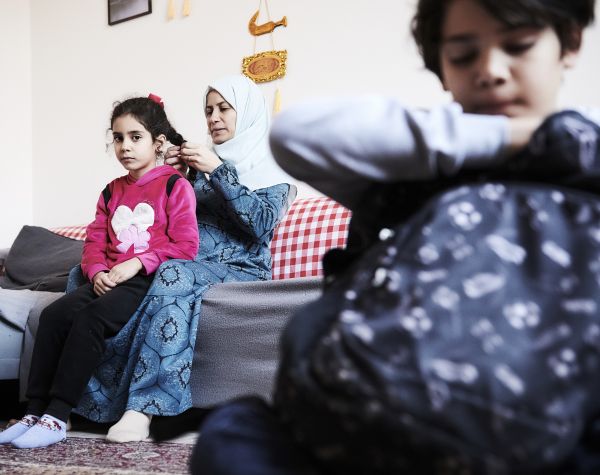
Amira's Children
“All we knew about this country was that it was in the middle of Europe, and that it didn’t like Muslims,” Amira recalls of her first contact with the Czech Republic. In 2015, after fleeing war-torn Syria, this country became a new home for her and her six children. This 10- year documentary follows the Alhariri family, as they integrate into Czech society, despite their different faith, culture, and traditions. While Amira becomes the cultural anchor of the family, her husband, Abdul, works hard in a small kebab shop. Their eldest son, Kenan, is scarred by his experiences of war, and struggles to find new values. His younger brother, Montaser, on the other hand, is clear about his inherited values. Son Adnan and daughter Zaina fit in perfectly with their Czech classmates from the first grade, while the youngest children, Hamud and Kamar, still have time to find their way. Amira knows what life in Europe has to offer, but she never stops believing in a return to her homeland. “What Mecca means to Mohammed, this mountain Říp means to Czechs.” — quote from the film
director: Markéta Ekrt Válková
original title: Amiřiny děti
country: Czech Republic
year: 2025
running time: 84 min.

AMOOSED: a moose odyssey
When director and ethnologist Hana Nováková encountered an elk, it changed her life. And she wasn't the first. For centuries, people across continents and cultures have been fascinated by this ancient totem animal, one of the largest mammals in the northern hemisphere. Whereas in the past they wanted to conquer it, today they tend to listen to it. The director's cinematic odyssey is the result of several years of searching for the secrets of the moose. It leads from Czech forests through a Russian domestication station to the territory of the indigenous peoples of Canada. A collage of stories told from personal, spiritual, and scientific perspectives shows the moose as a guide between worlds, a symbol of balance and renewal, and a possible answer to the question of how we can heal our relationship with nature.“Filming animals across the planet is an extraordinarily epic undertaking—all the more so when it involves a ‘process film,’ i.e., the unfolding observation of events whose outcome we often cannot predict, even though we know for certain that they were triggered by the filming itself.” — Hana NovákováSource: Dok.revue
director: Hana Nováková
original title: AMOOSED: losí odysea
country: Czech Republic, Slovakia
year: 2025
running time: 76 min.
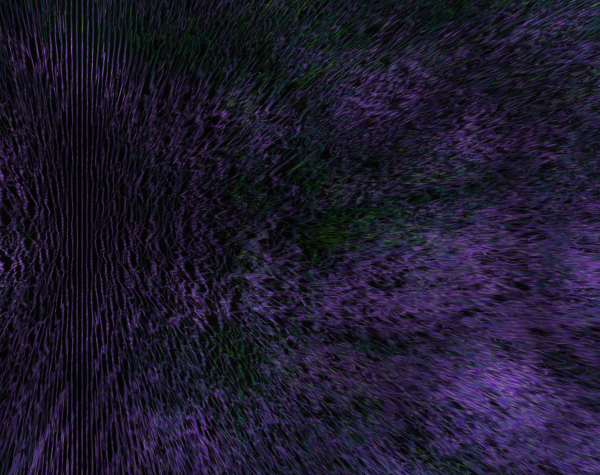
Bardo
“Bardo” is a Buddhist term for the state between death and rebirth, when a person's consciousness leaves the body and seeks a new form. Viera Čákanyová had a similar experience during dark therapy. Her short experimental film is an attempt to translate this transcendental experience, an encounter with another dimension of being, into images and words that are understandable even to those who have not descended into their own subconscious. While colours flow and textures blend into abstract images generated by artificial intelligence, the soundtrack features ambient music and an associative stream of the director's thoughts and feelings. The metaphysical journey does not lead to clear answers. However, it opens up space for perceiving what transcends language, reason, and the common understanding of reality. “I can't decide between being and non-being, action and inaction. I have been stuck in this dilemma my whole life.” — quote from the movieBefore the screening on October 28 in the DIOD hall, there will be a launch of a new book by theorist Jana Dudková entitled Člověk na okrAI: Postantropocén Viery Čákanyovej. The book is published by the Slovak Film Institute's publishing department.
director: Viera Čákanyová
original title: Bardo
country: Czech Republic, Slovakia
year: 2025
running time: 27 min.
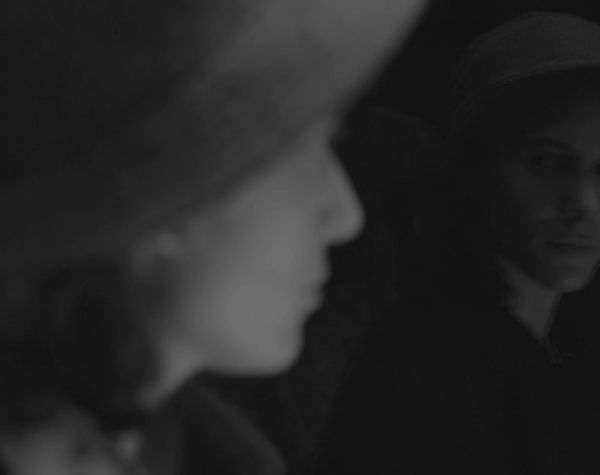
Fittko: Resistance and Exile
Director Allegra Stodolsky decided to continue her grandmother’s work in telling the story of their relative Lisa Fittko. A timely film which reflects upon the importance of the values fought for, which once again are under threat in today’s Europe. In 1930s Berlin, Fittko became politically active at a young age and joined leftist youth resistance, fighting against the rise of the Nazis. In using archival footage, re-enactment and the voice of Lisa Fittko herself, this documentary tells the story of the courage of a young woman who understood that freedom is not a guarantee and who chose to resist rather than stay silent in the face of oppression. “A woman who came of age during the rise of the fascist regime and chose to remain aware in the wake of fear.”
director: Allegra Stodolsky
original title: Fittko: Resistance and Exile
country: Czech Republic, Germany
year: 2025
running time: 28 min.

Grolich the Great
While a few years ago social media and a strong visual identity were a welcome accessory, today they are an essential part of political success. Jan Grolich, Christian Democrat governor of the South Moravia Region, is an example of a politician who has managed to effectively combine traditional values with modern marketing tools. He has gained popularity through his immediacy and perspective. He appears in the same way in Jakub Ondráček's observational documentary. It offers an authentic insight into the behind-the-scenes of Grolich's campaign before the 2024 regional elections, which were disrupted by floods. The camera impartially follows lively discussions about the design of election posters, the distribution of cake to potential voters, and the post-election dilemma of how to deal with results without losing the painstakingly created image of a person who wants to do things his own way. “Only if we achieve an extremely good result might my savior complex awaken within me, and in that case I might consider running for president. But I hope that doesn’t happen.” — quote from the film
director: Jakub Ondráček
original title: Vládce Grolich
country: Czech Republic
year: 2025
running time: 68 min.
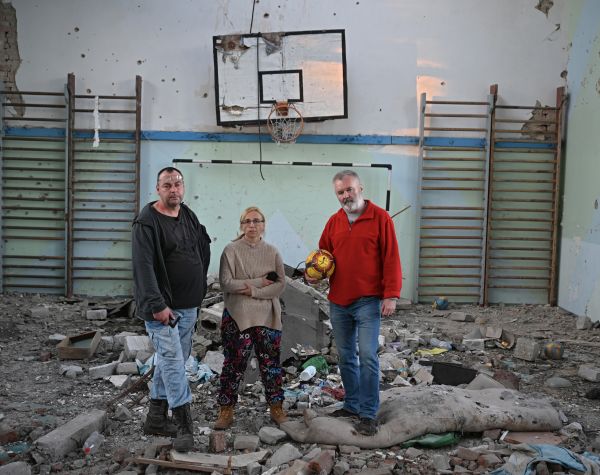
Change My Mind
In August 1968, Russian tanks invaded Czechoslovakia. Half a century later, two Czech men and one Czech woman set off in the opposite direction. They head across Ukraine to the front line to see Russian aggression – which they believe to be “complete nonsense” – with their own eyes. This is why director Robin Kvapil chose them as the actors for his tragicomic road movie. Like Ivo, Petra, and Nikola, he also has a clear view of things. He just thinks the exact opposite. And he believes the people who have lost their homes and loved ones rather than disinformation campaigns. Wandering through the bombed-out landscape conveys not only an emotional message about the courage of Ukrainians and their ability to live normally in abnormal times. It is also a statement that we often care more about our own truth than about the lives of others. “The city of Kharkiv is only about thirty kilometres from the Russian border, but even though you can have a latte and avocado toast for breakfast in a café, you can almost always hear artillery fire in the background. I felt a great responsibility for the entire crew and enormous respect for the Ukrainians who are trying to live and survive in this situation.” — Jakub Drocár, Punk Film
director: Robin Kvapil
original title: Velký vlastenecký výlet
country: Czech Republic, Slovakia, Ukraine
year: 2025
running time: 100 min.
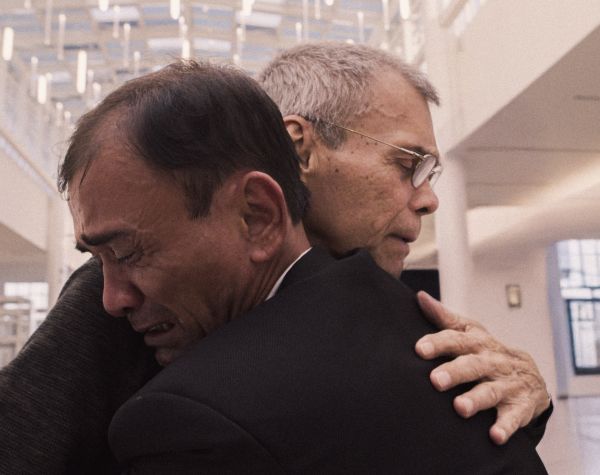
Child of Dust
Sang has struggled his entire life with the stigmatizing label of being a “child of dust.” This is how the unwanted offspring of Vietnamese women and American soldiers are referred to. Tens of thousands of them were born during the Vietnam War. Most of them never knew their fathers. Fifty years after the end of the conflict, Sang continues to search for his. He hopes that with the help of a DNA test, he will finally be able to find out where he belongs. But in order to find his new family, he must leave his current one. Just like his father once did. Nevertheless, he manages this emotionally demanding journey of self-discovery and acceptance with stoic calm. The same composure is evident in Mikael Lypinski's unobtrusive camera work and the gently melancholic soundtrack by Argentine composer Joaquín García. “Fatherhood in Vietnam is your social status. When something wrong happens to you, your father is your insurance for life… not having a father means that you don’t have social relevance.” — Weronika Mliczewska
director: Weronika Mliczewska
original title: Dziecko z pyłu
country: Poland, Czech Republic, Vietnam, Sweden, Qatar
year: 2025
running time: 93 min.
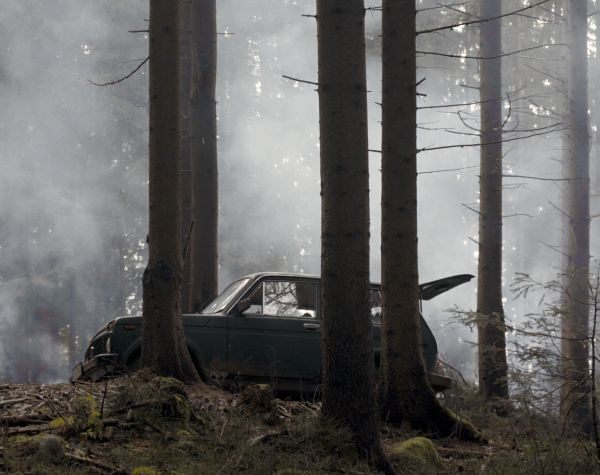
Chronicle
Landscape, architecture, animals, people. Different seasons. Work and leisure. Times of peace and times of crisis. From images captured over many years, Martin Kollár has compiled a collective portrait of contemporary Slovakia, which, through the lens of his camera, appears both familiar and dystopian. Static shots come to life thanks to the movement of figures and the interplay of parallel lines. Each tells a separate micro-story. Sometimes with a point, sometimes without. The individual images follow each other rhythmically, graphically, and thematically, or contrast humorously. The mosaic of everyday and absurd scenes thus presents an unexpectedly systematic report on the chaos and madness of the times we live in. “We decided that the film didn't need to have a story or a main character. The only limit would be the physical borders of Slovakia. Within those borders, we wanted to have complete freedom in recording reality.” — Martin Kollár
director: Martin Kollár
original title: Letopis
country: Slovakia, Czech Republic
year: 2025
running time: 70 min.
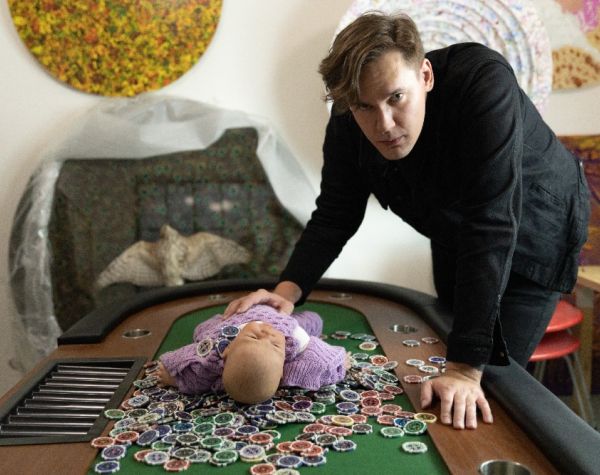
Is It Worth It!?
What determines the value of a work of art? One of the most discussed, and at the same time most elusive, questions of the contemporary art market is at the centre of Jan Strejcovský’s situational satire. Controversial art collector Robert Runták, gallery owner Olga Trčková, and intermedia artist Jiří David reflect on this from their respective positions. From the mosaic of confident statements and unlikely encounters between different worlds and opinions, it emerges that story, reputation, time, taste, emotions, trends, and contacts all play a role. Ultimately, however, it is mainly about agreement. Between those who create art, and those who pay for it. Strejcovský’s film also plays with the beliefs and expectations of the audience. Perhaps we are watching reality, perhaps a mystifying provocation.
director: Jan Strejcovský
original title: Má to cenu!?
country: Czech Republic
year: 2025
running time: 92 min.
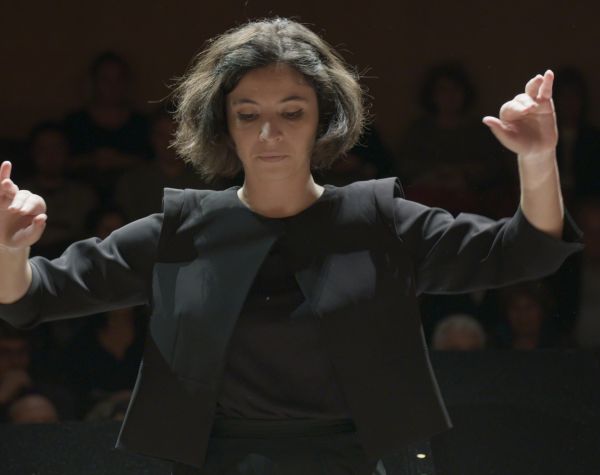
Kapralova
Czech composer Vítězslava Kaprálová was 22 years old when she left to study music in Paris in 1937. Three years later, she died of illness. This documentary, conceived as a dialogue across time and generations, follows in her footsteps. The short but intense period of the composer's life is reconstructed using archival footage and letters full of immediate impressions that the young artist shared with her family in Czechoslovakia. Her legacy is brought to life in parallel thanks to a new generation of conductors, such as Bianca Maretti, who rehearses some of her predecessor's compositions with an orchestra. Kaprálová's portrait thus becomes a tribute to all women who, despite language barriers, prejudices, and their origins, have managed to make their mark in the world of classical music. “In Paris, they are preparing for war. We are waiting anxiously to hear what Hitler will say today. We believe it will be decisive for the entire development of the situation.” — quote from the film
director: Petr Záruba
original title: Kaprálová
country: Czech Republic
year: 2025
running time: 70 min.

Kingdom of Soap Bubbles
Today, many laundry soaps in the Czech Republic are referred to as “the soap with the deer on the label.” However, the original product was manufactured by the Schicht factory in Rynoltice near Liberec. In the mid-19th century, Georg Schicht founded a small family business in the basement of a local house, which later grew into a multinational corporation. The progressive company's stability was first tested by World War I, then by the collapse of Austria-Hungary. The greatest upheaval came with the expulsion of the German population after World War II and the confiscation of property. Schicht's descendants are now scattered around the world. Their search for their roots forms the backbone of a documentary that captivatingly reconstructs the history of one company and one family. “In 2017, I was filming an interview with Constantin Werner in Munich […] Constantin Werner's colourful account of his family history captivated me so much that I became deeply interested in the fate of the Schicht family.” — Taťána Marková
director: Taťána Marková
original title: Království mýdlových bublin
country: Czech Republic
year: 2025
running time: 82 min.
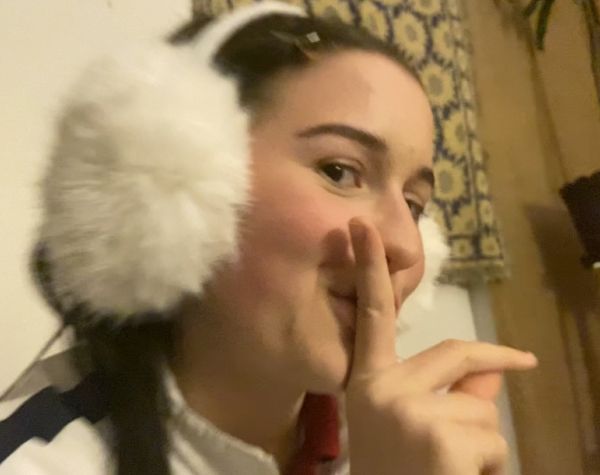
Minimum Love
Driven by the chaotic energy of Prague’s streets, the film consists of several spontaneous surveys. Together, they paint a picture of widespread apathy, and the values of today’s Czech youth. In addition to the author herself, the film features more or less sober young people who unabashedly share their views on the climate crisis, feminism, and the war in Ukraine, with the camera. But they also talk about the meaning of life, the secrets of good sex and love, the search for (and failure to find) which is one of the central themes of the film. “We have too little time in this world to be filled with hatred.”
director: Maja Penčič
original title: Minimum lásky
country: Czech Republic
year: 2025
running time: 76 min.
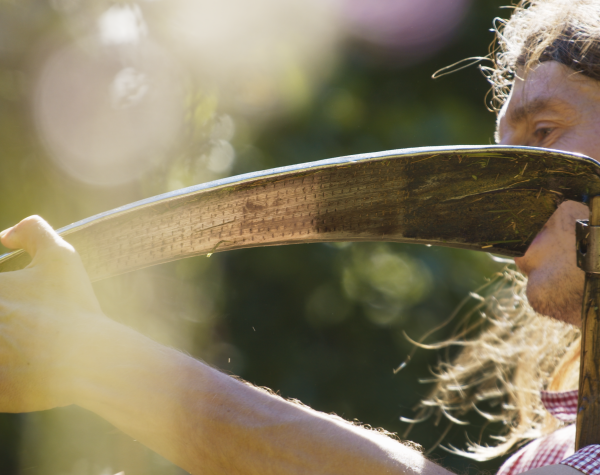
Resilience
This film, which straddles the line between lyrical essay and environmental detective story, follows a couple who have learned to listen to the silence of the Czech countryside with extraordinary sensitivity. Klára and her dogs search for people who are poisoning endangered birds of prey, while Pavel mows spring meadows by hand and restores wetlands damaged by drought and deforestation. They perceive the natural ecosystem as an integral part of themselves and believe that it makes sense to protect it, even if it seems like a futile struggle. In the slow rhythm of landscape changes, accompanied by the sounds of wind, birds, and music coming directly from the earth, this film, inspired by the ideas of cultural ecologist David Abram, asks whether it is still possible to restore the balance between humans and nature; a balance that is disappearing before our eyes more quickly than we are able to understand it. “We say that drought and bark beetles are responsible for the destruction of forests. We tend to simplify things like this. It's probably natural. But each of us, even the most ardent of foresters, knows that the reality is different.” — quote from the film
director: Tomáš Elšík
original title: Při zemi
country: Czech Republic
year: 2025
running time: 83 min.
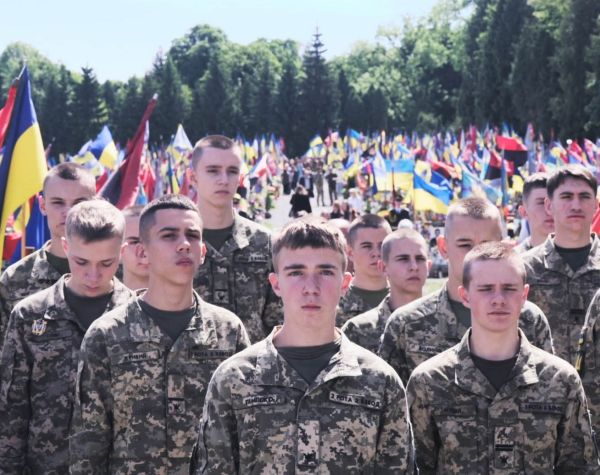
Time to the Target
Lviv, in western Ukraine, is located relatively far from the front line. Schools continue to operate, tourists flood the historic centre, and locals gather in cafés. Yet the normalcy of life is constantly disrupted by the consequences of Russian aggression. Every day, new graves are dug in cemeteries for fallen soldiers, and funeral music is interrupted by the sound of sirens. Vitaly Mansky was born in Lviv. His three-hour portrait of his hometown is also a tribute to the people there, who, despite constant uncertainty, try to maintain their dignity, cohesion, and courage. No additional commentary from the Ukrainian director is necessary. The cycle of life and death, joy and sorrow, is conveyed only through eloquent images and editing. “I thought Lviv was an eternal city and that I knew it very well… However, with the start of the first war in 2014, and later on, the full-scale war, when I was passing through Lviv, going somewhere else, I started to notice the gradual changes.” — Vitaly Mansky
director: Vitaly Mansky
original title: Chas pidlotu
country: Latvia, Czech Republic, Ukraine
year: 2025
running time: 179 min.
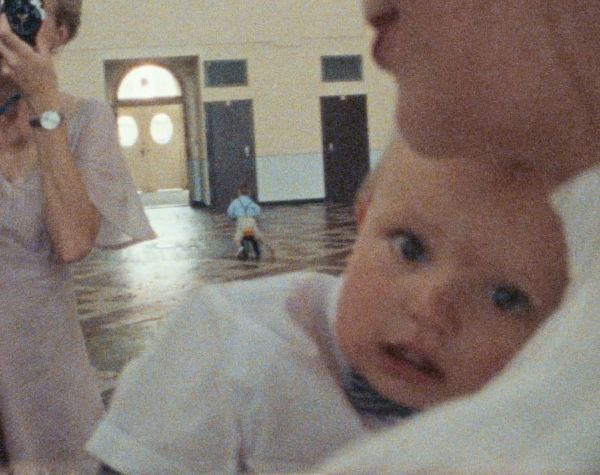
Unborn Father
Inspired by Jonas Mekas' diary films and his father's home videos, Michal Böhm composes a candid self-portrait of his own desire for fatherhood from numerous visual fragments. Six years of life, dozens of gestures, smiles, and silent faces captured by the nimble eye of an 8mm camera. A breakup with a partner, a new relationship, his mother's serious illness, meetings with friends. Demonstrations, pandemics, war, and weddings. Things both fleeting and fundamental. Life as a fabric of fleeting impressions and the camera as a tool that captures, shapes, and preserves them for future generations. And above all, reflections on the future and the legacy we will leave behind, and doubts about whether this is the right world and the right time to have a child.“But there had to be a soundtrack, and an 8mm camera doesn't record sound on its own. So in the end, I used fragments of conversations and excerpts from my own and other people's speech.” — Michal BöhmSource: Dok.revue
director: Michal Böhm
original title: Osm milimetrů rodiny
country: Czech Republic
year: 2025
running time: 83 min.
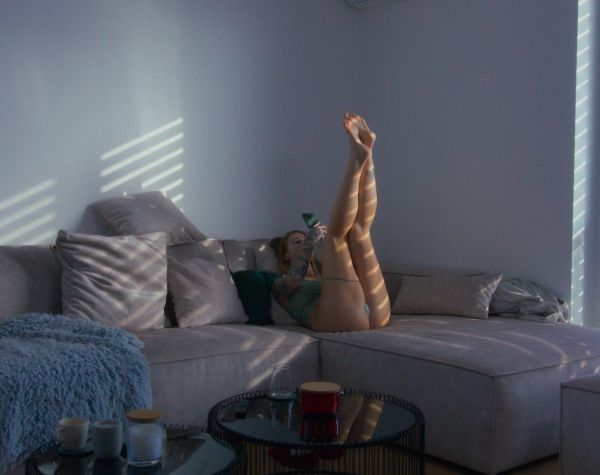
Virtual Girlfriends
The film explores online sex work on the OnlyFans platform through the stories of three real creators. We follow the process of content creation, conversations with subscribers, and the everyday dynamics of their partner and work relationships. OnlyFans is viewed here as just another form of work in late capitalism, where the boundaries between private and public de facto cease to exist. The platform becomes a place of economic and emotional exchange, where creators often provide the illusion of relationship and care, while at the same time seeking confirmation of their own value. It shows how strong the impact of the digital world is on family ties and mental health. The film also focuses on the creators’ partners, who are faced with the fact that their partners not only expose their bodies, but also form pseudo-romantic relationships with fans. The popularity of OnlyFans is interpreted as a manifestation of the current crisis of male loneliness, where the need for love and care enters into a transactional framework.“I serve as their therapist, I’m just naked doing so.”
director: Barbora Chalupová
original title: Virtuální přítelkyně
country: Czech Republic, Slovakia, Bulgaria
year: 2025
running time: 90 min.
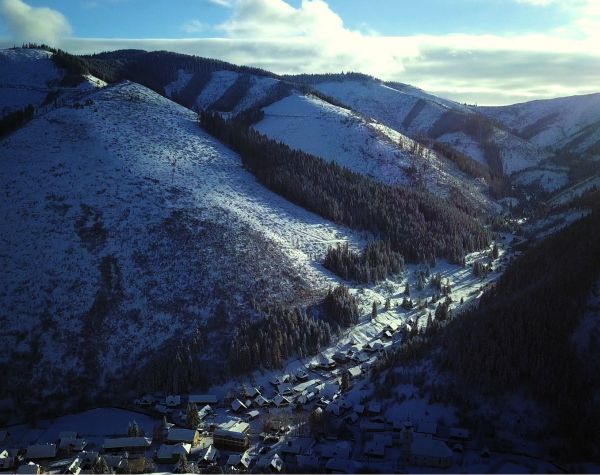
Voice of the Forest
Slovak forests have become the centre of cultural wars. For private owners, foresters, and hunters, they are a commodity that needs to be “cultivated with the saw.” Conservationists, on the other hand, advocate a hands-off approach. According to them, unrestrained logging and the mass culling of bears, which are moving closer to human dwellings from noisy forests, are destroying the ecosystem. The ongoing debate about who owns the forest is as polarized as society itself. Often, it is not rational arguments and long-term concepts that decide, but momentary emotions and ideologies. In her analytical documentary, Zuzana Piussi gives space to all parties involved and, together with them, reflects on the future of the Slovak landscape in times of a declining ability to communicate with one another. “The film began eight or nine years ago when the We Are the Forest campaign was launched. I shot some footage at the time and put the film aside. I waited to see how the topic would develop. I returned to the material years later and found that not much had changed. The old material hadn't aged, but it had matured, so I finished the film.” — Zuzana Piussi
director: Zuzana Piussi
original title: Hlas lesa
country: Slovakia, Czech Republic
year: 2025
running time: 73 min.
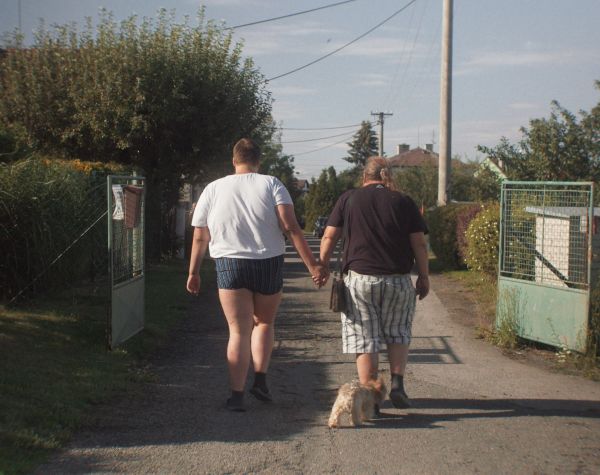
What About Petey?
Peter will soon be eighteen. He already has the physique of an adult man. And considerable strength, which he sometimes turns against himself, sometimes against those close to him, including his father, who is raising him alone. Outbursts of aggression are a way for the adolescent boy to give vent to feelings and needs that he cannot otherwise articulate due to his autism spectrum disorder. His disability requires him to be constantly on guard. Despite this, and despite financial and institutional limitations, Peter's father, his sister Vanesa, and a pair of assistants try to create an accepting, safe environment for the boy. This intimate observational documentary, filmed over three years, highlights the patience and dedication of people who have decided to devote their lives to caring for others.“The film should therefore be a tribute to people in caregiving positions. We want to show what they have to deal with in life, their motivations and doubts, and also what life or working with disabled people brings them.” — Martin TrabalíkSource: Dok.revue
director: Martin Trabalík
original title: Co s Péťou?
country: Czech Republic
year: 2025
running time: 86 min.










